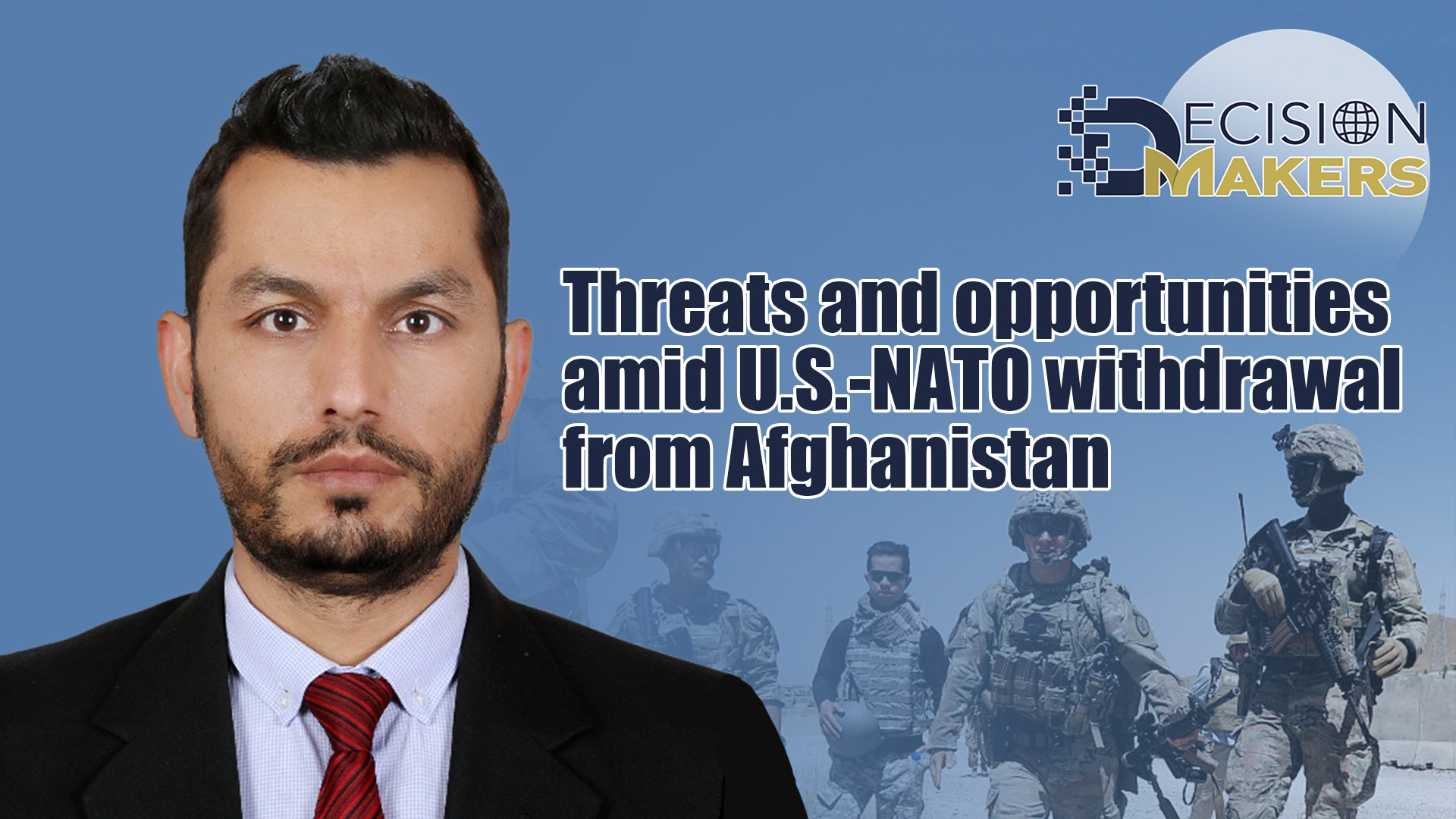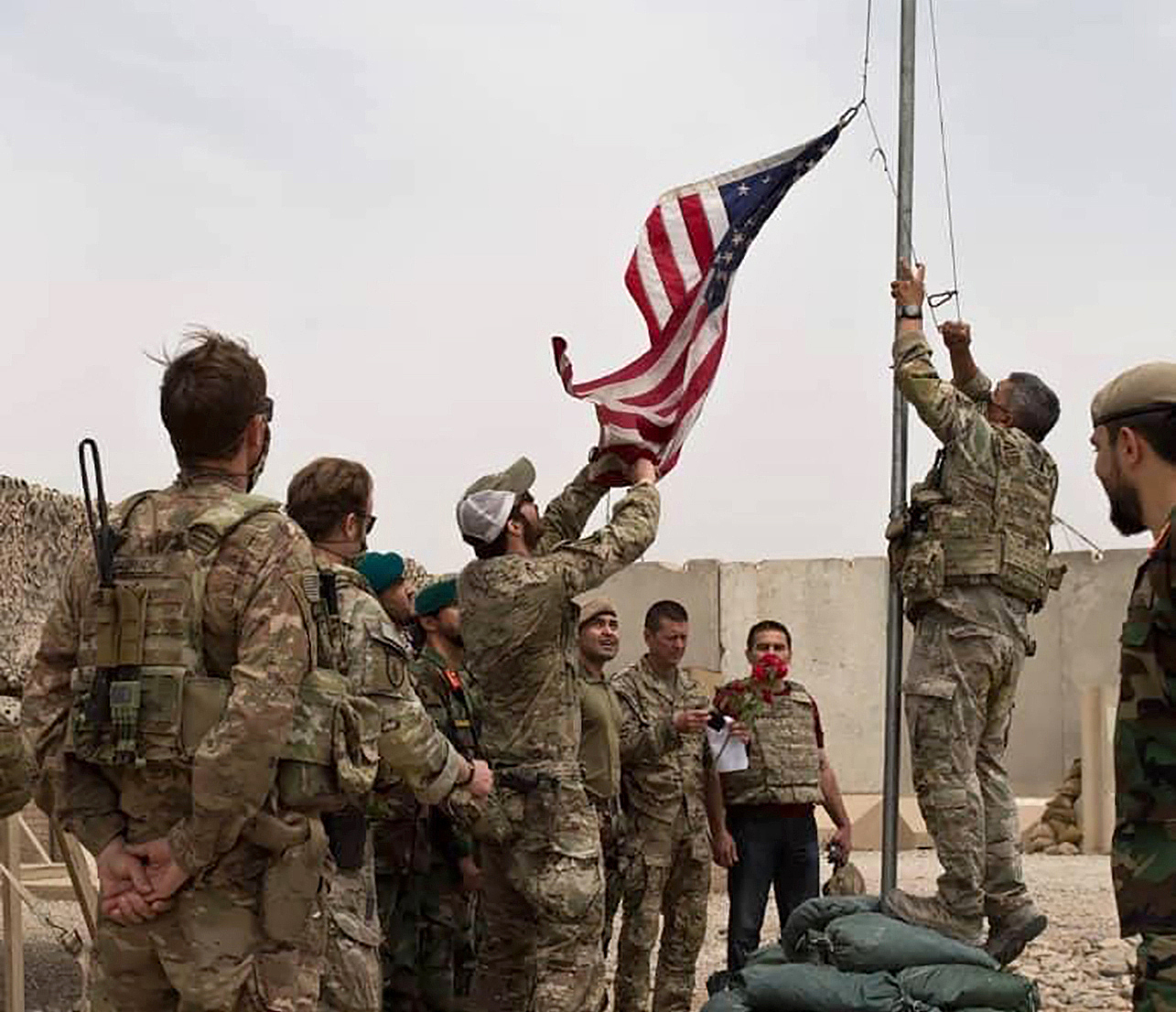
Editor’s note: Decision Makers is a global platform for decision makers to share their insights on events shaping today’s world. Shokrullah Amiri is an experienced consultant and a former head of private sector development in the office of the president of Afghanistan. The article reflects the author’s opinions and not necessarily the views of CGTN.
When U.S. President Biden’s decision to end “America’s longest war” made headlines in Afghanistan, people in the country were alarmed and reacted in different ways. Most Afghans believe that the U.S. withdrawal of troops is a serious threat to their future and increases the possibility of civil war.
Here are some key questions that require answers: Does the U.S.-NATO troop withdrawal from Afghanistan mean a discontinuation of security and financial assistance? Will this withdrawal lead to the collapse of the Afghan state and a complete takeover by Taliban militants? Will there be civil war?
It seems that the withdrawal does not mean then end of assistance to Afghanistan. This belief is based on two assumptions. First, the U.S. acts according to its strategic culture and will try to prevent rival powers from infiltrating Afghanistan. The second assumption goes back to the U.S. president who has made it clear in a White House press statement that the withdrawal does not mean a weakening of U.S. backing for Afghanistan. “We will continue to support the strengthening of the Afghan security and defense forces,” Biden told Ashraf Ghani. This is clearly evidenced in an Aryana News report that the U.S. defense budget proposal for 2022 includes $3.3 billion in aid for Afghanistan. Also, the U.S. did not rule out deploying airstrikes from outside the country, and NATO will most likely continue training Afghan forces in Jordan (NYT).
However, many Afghan politicians, as well as most citizens, are concerned about their future and see the military withdrawal as a serious threat to their country. But if one looks at it broadly, the withdrawal is both an opportunity and a threat.
Threats
As the removal of foreign troops from Afghanistan continues, we have been witnessing growing violence and territorial gains by the Taliban. The insufficient level of foreign air support for the Afghan forces can hurt them on the ground.
Afghan politicians believe that there is a possibility of a civil war. Mir Rahman Rahmani, the speaker of parliament, has warned as much. An all-out internal conflict would reverse all the progress made in human rights and development. It will also provide the ground for the resurfacing of constrained Al-Qaida and IS-K terrorist groups in Afghanistan.
There is also a buildup among anti-Taliban militant groups whose confrontation under the Northern Alliance denied the Taliban a complete takeover in 1999. Stars and Stripes reports that Ahmad Massoud, the son of late commander Ahmad Shah Massoud, claims over 100,000 fighters and supporters have so far pledged support to his movement named “Resistance 2.0,” adding to the deepening divisions that create conditions for a civil war.
Afghans have long been living in a fragile and broken state. The withdrawal of U.S.-NATO troops has added to the complexity of their plight. Afghans are indeed used to these situations but what now matters most is the scenario of civil war and the collapse of the political system built with the sacrifice of over 69,000 soldiers and 47,000 civilians (AP).

A U.S. flag is lowered as American and Afghan soldiers attend a handover ceremony from the U.S. Army to the Afghan National Army, at Camp Anthonic, in Helmand province, southern Afghanistan, May 2, 2021. /CFP
Opportunities
The military withdrawal could nevertheless present several opportunities for Afghanistan. The Taliban’s brutal attacks against the security forces and civilians even during the U.S.-NATO presence are against human and Islamic values, and the withdrawal of foreign soldiers will weaken the religious-moral justification for continuing a “holy war” in Afghanistan. Over the years, the Taliban have legitimized their inhumane violence under the slogan of “Jihad against Infidels.” In contrast, the U.S.-NATO withdrawal will help Afghan forces attract more religious support and recognition from the local and international community. The Taliban would hate to see this happen, and it might force them to seek a peace deal with the Afghan government.
The U.S.-NATO withdrawal will strengthen the desire for “self-reliance” among the citizens of Afghanistan. By using local values and national spirit, one can dream of a free and prosperous Afghanistan. Undoubtedly, foreigners can intervene or withdraw whenever they want, depending on their interests. Therefore, the U.S.-NATO withdrawal can convince Afghans that they have no choice but to stand on their own feet, which in the long run can be beneficial for the nation’s development.
Afghanistan’s geopolitics and geo-economics have a special appeal to the great powers. The assumption is that if Afghanistan enters a new crisis in the absence of the United States, there are others who can side with Afghanistan and help manage the transition. One can mention Russia, China and Turkey.
Conclusion
It is obvious that the threats posed by the U.S.-NATO withdrawal from Afghanistan seem to be greater than the opportunities offered.
The opportunities, in turn, pose their own inherent threats and would not guarantee a stable, peaceful and prosperous Afghanistan in the foreseeable future.
The article was originally published in news.cgtn.com
